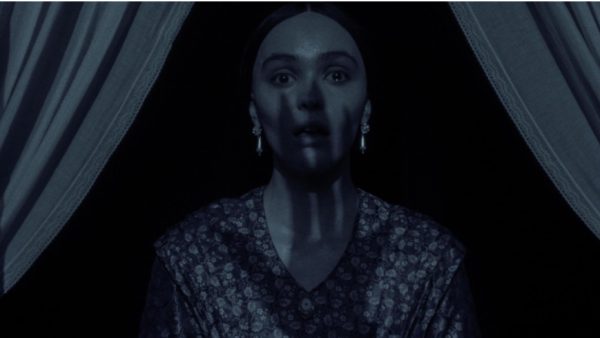EVA’S EVALS: “The Beginner’s Guide” review
Most writers are writers. This statement is entirely redundant, but the message is that it’s fairly common for works such as plays and novels to feature a writer as its protagonist. The same can be said for film, which disproportionately indulges in the stories of struggling actors and directors from “Birdman” to “Tropic Thunder.” Following this, most game developers are game developers — but, in contrast, there aren’t many games which give explicit insight into a developer’s mind, with the exception of tycoon titles. Why? Well, maybe it’s because games typically try to bring the player into a novel environment, not a programmer’s cluttered desk. Maybe it’s because the idea of an autobiographical video game is very new. Or maybe — and this is the answer I like — no one’s tried it yet.
Until now.
“The Beginner’s Guide” is a “walking simulator”-style game with narration by Davey Wreden, who spins the story of his long friendship with a mysterious game developer named Coda. Wreden, having long since lost contact with this person, decides to publish a collection of Coda’s games online in the hopes that it will reach him and convince him to start creating again. The concept is unique in that it asks the player to analyze Coda on a meta level, trying to figure out who he is as a person from the virtual spaces he left behind. Wreden guides the player through these games in documentary format, giving his interpretation of their features. From the opening level:
“I want us to see past the games themselves. I want to know who this human being really is, and that’s exactly what we’re going to do here.”
Though Wreden is indeed the real dev (and creator of one of my favorite games, “The Stanley Parable”), he plays a fictional version of himself here. This fictional Wreden is a really, really big fan of Coda. As he details their friendship, however, it soon becomes apparent that not everything is as it seems. Without spoiling too much, by the end, the player learns much more about Wreden than Coda.
My thoughts are that while “The Beginner’s Guide” is not a perfectly satisfying game, it accomplishes what it sets out to do, and it does so beautifully. It treats games as a perfectly analyzable art form and questions more generally how art should be interpreted — is it possible to ever truly know a creator from their work alone? Is trying to do so dangerous? Ultimately, whereas other titles like “Firewatch” could easily be a novel, this gives us a story that can only be told through a game, which is cool and groundbreaking. I wholeheartedly recommend this one to those who are excited about stories and are willing to play a game that, while there are a few moments of dark comedy, is more somber and cerebral in tone compared to Wreden’s previous hit.
One thing that had an especially large impact on me was the theme of validation in “The Beginner’s Guide” — the need for validation as an extrinsic drive. One blog post on Galactic Café, (real-life) Wreden’s website, details his experience with this issue following “The Stanley Parable,” and it added a new dimension to the game’s story for me. Was Wreden in this headspace when he wrote “The Beginner’s Guide?” Maybe. Whatever I extrapolate about Wreden himself is quite dependent, if not entirely dependent, on my personal interpretation of the game — colored by my expectations and experiences. Trying to say that I know his intentions is indeed dangerous. Bottom line is that this game is interesting, inimitable and so, so hard to explain, and that’s what makes it so wonderful.
Your donation will support the student journalists of Omaha Westside High School. Your contribution will allow us to purchase equipment and cover our annual website hosting costs.







